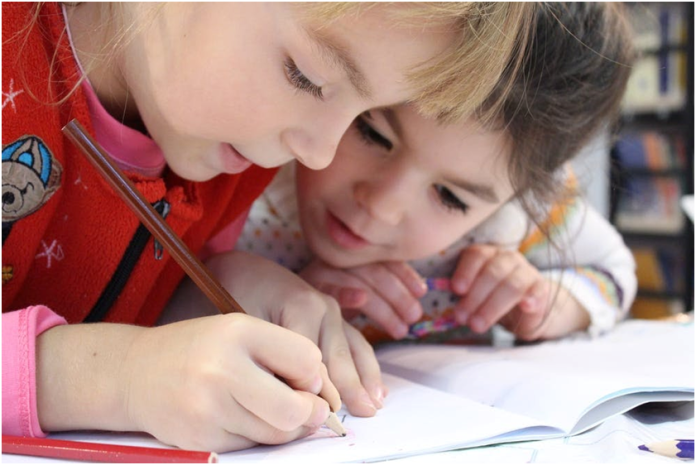If you hang around preschoolers long enough, you’ll realize how many questions they can ask you in the whole duration of time you’ve spent together. Then, while you’re running out of juice to tell them, you get to understand how their questions were just getting started. Fascinating, right?
Diving into preschoolers’ cognitive development can be a good guide to first-time parents, aunts, and uncles alike.
Table of Contents
Who are the preschoolers?
Cognitive development among preschoolers
At the age of three
At the age of four
At the age of five
Who Are the Preschoolers?
Preschoolers can be considered children who have outgrown wearing diapers but are still not old enough to go to regular school. Children aged 3-5 are usually considered to be preschoolers, and they do not spend long hours learning. These children learn at preschools with education designed to suit their age and playful nature. Children at these ages can be very active, energetic and ask many questions about most random things.
Cognitive Development Among Preschoolers
At the age of three
Children who are three years old will have a lot of questions when they are awake. Everything they see around them will fascinate them, and they will pay closer attention to explaining things that they get from people close to them. Three-year-olds cannot digest a detailed serious description, but simple and understandable advice will make more sense to them.
You will hear the word ‘why’ hundreds of times a day because everything they see will be a question to them. At most times, you will have no answers, and sometimes you will have no energy to answer every question. They could be random questions as to ‘why the cat can’t speak?’ or ‘why is this leaf green?’ But you should take these questions more seriously because, at this stage of learning, you will help the child broaden their knowledge and help them think clearly by finding a way to give them the correct answers.
When three-year-olds run into a learning problem, they will only look at the problem from one side. They will assume things from what they see rather than think so broadly. For example, if you take a small heavy piece of metal and cotton that looks bigger than the metal piece, the child will say that the cotton is more serious because it seems bigger. Again, this is because they only see things from one angle.
When your child is three years old, they will understand the daily routines. For example, if the milkman or the paperman visits your house every day, they will be looking forward to it every day, and if one day one of them doesn’t show up, it will raise a question in your three-year-old mind. She will be aware of the celebrations such as birthdays and other special events but surely will have no idea about the time of the year.
At the age of four
By the age of 4, your child will have a better sense of things. With his education at preschool, he will be more aware of the basic concepts. For example, he will understand that a day can be divided into three: the morning, afternoon and night, the time is measured by minutes and hours and a day is completed by 24 hours. Apart from this, the basics of counting numbers, reciting the alphabet, reading, and writing are taught in preschool.
At this age, it would also be a good time to take your child to places such as the zoo, museum or other types of attractions where the child could learn by looking at stuff that he cannot usually see in the neighborhood. Different children have different kinds of abilities such as some will
show their interest in drawing and some in singing or some at dancing, you should respect all these types of skills and take him to places which interests him the most. For example, if your child likes to build stuff with legos, take him to a construction place. This will further boost the interest of the child. Also, always try to find the answers to his questions by referring to books or other sources. During this time, your child will be discovering the joys of learning new things. This will pave the path for him to be self-motivated when he finally goes into formal education.
Your 4-year-old child, niece, or nephew, will also start to ask practical and “universal” questions like what’s the world’s composition or what happens after death. Here you’ll finally get the question, “why is the sky blue?” so you better prepare a logical explanation to that already. You can rely on the books they’re already reading so that they can counter check any time they want; it builds credibility and trustworthiness on your part, too.
At the age of five
Children will show independence and more progressive thinking at this stage. They will already be familiar with your address and phone number. They can count more than 10, name more things, and recognize at least four colors. They will also know more about what money is for or the specific use for certain household equipment. They have a more advanced play at this age and can tell a story in complete sentences.
They can be more agreeable at this stage, too. They’ll learn how to please you and their friends and continue to seek new experiences. Drawing a person with complete body parts is also possible at this stage, plus they can copy and attract more than three geometrical shapes and recognize them well. You can nurture their desire for independence by providing them with tasks they can complete and creating a routine that practices accountability.
These changes are truly fascinating when you get to experience them with them. This is a good time to build a strong and reliable connection with your child, niece, or nephew. Don’t worry about whether or not they’ll remember when they grow up; the emotions they’ve attached or associated with those memories will remain whenever they spend time with you.




